When breastfeeding, we all have periods where our milk production lowers for some unknown reason. Luckily, there is one thing that seems to do the trick to help out with breast milk production.
That one thing is tea, specifically tea for breastfeeding.
Yes, I know, it sounds like something you’d hear some shifty salesman on a street corner trying to swindle you with, but there seems to be some truth to it.
Current research shows that these lactation teas do, in fact, help stimulate the production of a mother’s milk and some breastfeeding mothers would go as far as to swear by their effectiveness.
This is mostly due to the modern trend of everything turning back to its roots, both figuratively and literally.
People want organic and they’re fed up with chemicals polluting their body.
I’m probably guilty of falling for this trend myself, but I do have to admit that these teas have helped me out immensely.
It’s not even just the medicinal benefits of herbal teas, it’s the fact that simply switching to a caffeine free warm drink aids in overall relaxation.
Who knows, maybe it’s just the stress of the modern world that’s causing your letdown reflex to take its sweet time, stifling milk flow and causing a number of other problems not related to breastfeeding but rather your overall health.
RELATED: 7 Ways to Achieve a Faster Milk Let-down
Another added benefit is that you’re adding to your liquid intake. Staying hydrated is important, especially for breastfeeding moms and dehydration can definitely lead to a low milk supply.
Keeping yourself topped up can become somewhat bland and boring if you’re just chugging regular water down.
Breastfeeding tea adds a little variety thanks to the various organic herbs and different flavors, allowing for drinks that are both healthy and tasty throughout the day.
How Safe Are The Herbs Used In Herbal Nursing Teas Really?
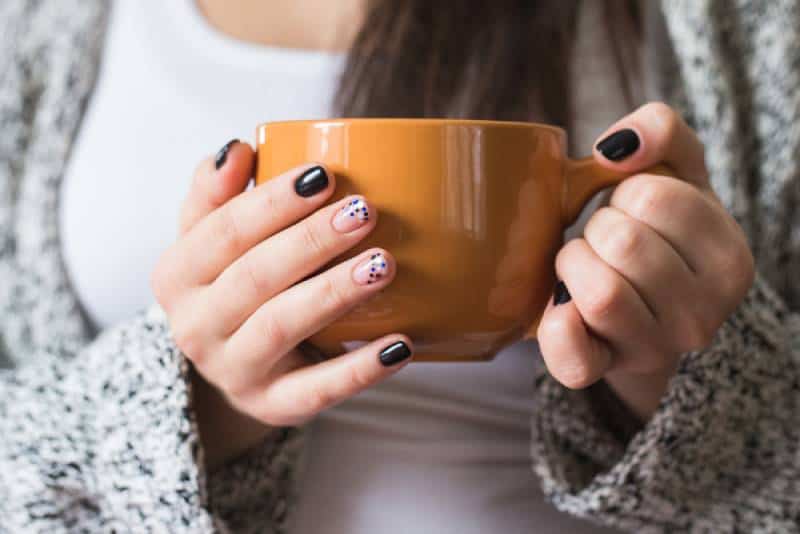
While there’s nothing necessarily bad about any of these teas if taken as directed, they can still cause some side effects if the correct procedure isn’t followed and too much is ingested.
Herbs may be natural, but they’re still very potent natural drugs and most of them can be found in modern medicines as well.
This goes all the way from a basic aspirin to the strongest of opiates depending on the type of herb used in the manufacturing process.
There is a reason why the FDA (Food and Drug Administration) in the United States tends to not list herbal medicines as actual drugs but instead opts to put them down as a dietary supplement.
They’re not meant to be taken neat and their potency needs to be diluted somehow.
One of the most common risks that many nursing moms seem to encounter when taking herbal teas is not checking the box for the proper dosage.
It’s equally as important to note as when taking herbal supplements as overdosing might cause a whole array of complications down the line.
The problem with the tea ingested herbs is that we’re simply not used to teas being a ‘medicinal’ drink, but rather something we get to enjoy whenever we want.
Still, someone had to try and raise awareness about this and it may as well be me.
One of the biggest issues nursing moms find when considering teas for breastfeeding is phytoestrogens.
Phytoestrogens are plant-based substances that can be found in fenugreek, alfalfa, anise, and licorice roots that act similarly to estrogen and can cause some hormonal complications.
Though, arguably not as big of an issue as it would with pregnant women where it confuses the body into sudden contraction cycles that can be dangerous for both mom and baby.
This is why it’s of paramount importance to practice safe dosage and to read the labels of the things you consume.
You’d be surprised just how many of these things might be causing you harm because you might have been consuming more than you were supposed to.
1. Traditional Medicinals Organic Mother’s Milk Tea
- Promotes breast milk production for nursing mothers
- Americas #1 lactation tea. Loved by moms for over 40 years.
- Clinically tested for safety
- Lactation consultant recommended
- No stevia. No natural flavors. Caffeine-free
- Medicinal-grade organic herbs from ethical trading partnerships
- Case of six boxes, each box containing 16 sealed tea bags (96 total tea bags)
Prices pulled from the Amazon Product Advertising API on:
Product prices and availability are accurate as of the date/time indicated and are subject to change. Any price and availability information displayed on [relevant Amazon Site(s), as applicable] at the time of purchase will apply to the purchase of this product.
The first product on our list is the Traditional Medicinals Mother’s Milk tea. It’s a mix of several galactagogue herbs all brought together into one product.
The herbs in question are fenugreek, fennel, blessed thistle, and anise, with hints of spearmint, marshmallow root, lemon verbena, and lemongrass as the milder herb base to enhance and provide the flavor.
While the taste still remains bitter due to no added artificial sugars or stevia, the addition of anise manages to mask most of it with a sweet taste reminiscent of black licorice, allowing for a much more pleasant drinking experience.
The combination of these four main galactagogues in the breastfeeding tea serves as a powerful inciter of increased breast milk production and the Traditional Medicinals tea is #1 in the United States for breastfeeding moms – and it has been that way for nearly 40 years.
It’s fully organic and caffeine free as well, ensuring a calm and relaxing cup of tea at any point in the day.
For all of you eco-conscious moms out there, the organic tag also includes the tea bags themselves, which are fully compostable thanks to their wood pulp and abaca construction.
One other notable achievement America’s #1 lactation tea possesses is the fact that it is purely non-GMO and it’s 100% USDA certified, meaning it’s safe for consumption without having to worry about any hidden artificial chemicals or the like.
As for the actual dosage, it’s recommended to only imbibe between 3-5 regular sized cups of it a day, otherwise you might experience side effects like diarrhea or extremely low blood pressure due to the nature of galactagogues.
And, if you’re allergic to any of the mentioned ingredients, don’t try to force yourself into it, it’ll only be bad for your health.
There are plenty of alternatives out there on the market if you’re looking to increase your milk supply.
One tea bag is good for about 8 ounces of water and you get a solid 16 of them in one packet. A pretty good deal that makes it one of the more budget-friendly teas on the market.
2. The Republic of Tea Organic Fenugreek SuperHerb Tea For Nursing Moms
- Fenugreek has been used in traditional cultures for thousands of years and today is nature’s most popular herb for supporting healthy breast milk production.*
- Blended with a hint of organic cinnamon, this caffeine-free tea offers a soothing and delicious moment of relaxation.
- This herbal blend is naturally caffeine-free.
- This blend is certified organic, gluten free, sugar free and contains zero calories.
Prices pulled from the Amazon Product Advertising API on:
Product prices and availability are accurate as of the date/time indicated and are subject to change. Any price and availability information displayed on [relevant Amazon Site(s), as applicable] at the time of purchase will apply to the purchase of this product.
The next on our list of good breastfeeding teas is the Republic of Tea’s fully organic lactation tea that includes a whopping 36 tea bags per pack, giving you quite the bang for your buck considering how pricey some other health products can get.
Using the potent galactagogue, fenugreek, the company has stuck to one of the most potent ingredients available to ensure any issues concerning low milk supply are alleviated so you can go about your daily routine without much worry.
On top of the fenugreek, Republic of Tea also mixes a bit of organic carrot and cinnamon into the tea blend to provide a satisfying flavor that complements the natural bitterness of galactagogues and adds a bit of variety to the maple syrup flavor of the fenugreek.
The tea bags come packed in a nice little tin that’s easy to store and keeps the bags dry.
Not only that, but the bags aren’t bleached like many white products we see on the shelves today and the product is completely free of any GMOs and caffeine.
It’s also completely organic and void of any artificial sugars, making it quite low on calories.
This ensures a relaxing day with a nice cup of healthy tea to sip while providing for the needs of your child or working, whichever the case may be.
That said, always make sure to keep to the correct dosage. Fenugreek is exceptionally powerful, especially when used as the sole galactagogue in a tea mix.
Drink anywhere between 1 to 3 cups a day and reduce as needed if it starts causing stomach cramps and bouts of diarrhea.
If you’re still pregnant, then avoid drinking it or any nursing tea if you can, as most of them contain phytoestrogens which can cause involuntary uterine contractions, something you most certainly want to avoid at any cost.
3. UpSpring Milkflow Fenugreek and Blessed Thistle Lactation Tea
- CONCENTRATED FORMULA CONTAINS THREE BREAST MILK BOOSTERS fenugreek, blessed thistle and anise
- TASTY AND CONVENIENT LACTATION TEA - alternative to fenugreek pills, elixirs or fenugreek tea bags; consume only 1-3 times daily; mix with milk and enjoy hot or cold. Our loose fenugreek tea allows you to mix easily without using bags.
- NO ARTIFICIAL ANYTHING! All natural, gluten-free, non-GMO and low sugar (Does contains dairy and soy)
Prices pulled from the Amazon Product Advertising API on:
Product prices and availability are accurate as of the date/time indicated and are subject to change. Any price and availability information displayed on [relevant Amazon Site(s), as applicable] at the time of purchase will apply to the purchase of this product.
Next up on our list is a wonderful budget option that comes from UpSpring Baby and it’s quite the unique one.
Unlike the other products on this list that work by being brewed like traditional teas, the UpSpring lactation tea is mixed with milk rather than water, making it more akin to the Taiwanese-style bubble milk teas or light smoothies.
And instead of coming as leaves in tea bags, the UpSpring breastfeeding tea is provided in powder form contained within a canister.
While not a purely traditional tea, it still qualifies as one and it still holds the same dosage warnings as other herbal nursing teas on this list, so don’t forget to keep to those yet again.
In UpSpring’s case you should have one or two cup servings only, though it may be hard to evaluate due to the powdery nature.
That aside, the main reason for the precautions are the ingredients the tea blend is made out of, which are anise, blessed thistle and fenugreek – fenugreek being a rather potent galactagogue that should be taken in smaller doses than others.
Some other notable ingredients are ginger root, cardamom, black tea leaves, and stevia extract.
The stevia is purely natural and a healthier alternative to artificial sugars, but it’s still a sweetener which provides a flavor that might not be to your liking.
On top of that, it’s worth mentioning that there are trace amounts of caffeine in the product that come from the black tea leaves, but that’s a natural occurrence and hopefully shouldn’t cause any adverse effects if consumed properly.
If you have some concerns, know that they were awarded the Family Choice golden award back in 2017 for being one of the best lactation teas for breastfeeding on the market and I highly doubt that position has changed too much since.
This is because of both their level of transparency and quality as they don’t want to hide any potentially dangerous ingredients behind alternate names.
Instead they want mothers to choose armed with all of the necessary knowledge.
The product is also completely organic, free from any GMOs, and is completely gluten-free.
And, to justify what I said at the start, one purchase contains enough servings for 24 whole cups, which is well over any other herbal tea for breastfeeding that you might encounter on the market.
4. Pink Stork Lactation Tea
- PURE: Includes 7 key Galactagogues: Fenugreek + Nettle + Anise + More.
- GENTLE: Herbal Mint Breastfeeding Tea - enjoy hot or cold!
- PREMIUM: Packed with essential Galactagogues & Vitamins, developed to increase breast milk supply & flow + improve taste.
- CLEAN: Made without GMOs, Gluten, Wheat, Sugar/Sweeteners, Dairy, Soy + More.
Prices pulled from the Amazon Product Advertising API on:
Product prices and availability are accurate as of the date/time indicated and are subject to change. Any price and availability information displayed on [relevant Amazon Site(s), as applicable] at the time of purchase will apply to the purchase of this product.
Now, if you’re someone who values religion highly and you are very devout, you might like Pink Stork’s lactation tea.
While the tea itself doesn’t have any properties that bring you closer to God, the company itself is one who values the good traditions of Christianity as well as being founded and owned by mothers like you and me.
Made out of a tea blend of fenugreek, anise, fennel seeds, stinging nettle and licorice, with a bit of spearmint mixed in for added flavor, Pink Stork lactation tea is quite the potent warm beverage.
It will definitely help give you that extra kick your mammaries need to start the milk producing process back up again at full speed.
While yes, any sort of mint normally reduces milk flow, Pink Stork worked with a professional lactation consultant to create this unique tea blend, so you can be sure it doesn’t contain enough mint to actually impede milk production.
And, to top it all off, it’s fully caffeine-free, is completely organic with no GMOs added whatsoever, and contains no other problematic ingredients that might trigger intolerances and allergies like gluten, dairy, soy or natural/artificial sweeteners.
The recommended dosage for this tea is up to three cups a day, but you should pace yourself if you start seeing any of the usual side effects from overdosing on galactagogues like diarrhea, low blood pressure and the like.
And, as with any other tea on this list, always consult your healthcare provider, be they your doctor or your lactation consultant before taking it due to the potent and drug-like nature of the herbs in question.
5. Oat Mamas Lactation Tea for Breast Milk Supply
- BOOST YOUR SUPPLY - We crafted our lactation tea to help you get the nutrients and energy you need even until postpartum. Never worry about increasing your milk supply again and keep your baby well-fed with Oat Mama.
- PICK YOUR FLAVOR - Our tea comes in 3 delicious flavors blended with milk-boosting herbs to keep you hydrated and nourished. Choose from Blueberry Pomegranate, Chai Spice, and Tropical Citrus flavors!
- STAY NOURISHED FOR YOURSELF AND YOUR BABY - We want to give you the most effective products to help you stay relaxed and properly nourished. Hence, we have carefully selected each ingredient to ensure the optimal quality of our tea.
Prices pulled from the Amazon Product Advertising API on:
Product prices and availability are accurate as of the date/time indicated and are subject to change. Any price and availability information displayed on [relevant Amazon Site(s), as applicable] at the time of purchase will apply to the purchase of this product.
If you’re looking for teas for breastfeeding that still retain their potency in increasing breast milk production while not having that bitter, herby taste, then Oat Mamas Lactation Tea might be just the right tea for you.
Not only does it have a nice, fruity taste, it also serves as a refreshing warm beverage to start the day off with rather than something that might lull you to sleep.
Plus, Oat Mamas is a company founded and owned by fellow mammas, ones who decided they wanted to bring something new to the field by mixing refreshing and tangy fruit flavors that complement the herbal teas beautifully.
Coming in three different flavors, Chai Spice, Blueberry Pomegranate and Tropical Citrus, each of them is sure to give you a refreshing kick to get you ready for a full day of mothering, work, or anything else on your schedule.
This is where their motto “Feed with love, sip with purpose” came from.
The founding moms didn’t like having to stomach the bitter, medicinal taste that most herbal teas had so they decided to make a fruity, but still rather healthy drink out of it.
While only packing three different galactagogues: fennel seeds, alfalfa, and nettle leaves, Oat Mama makes sure to get the most out of them and goes for quality rather than quantity in terms of effectiveness.
Why mix so many ingredients together when you can rely on a few trusty ones and enhance the flavor by adding a bit of blueberry and pomegranate extract (or citrus/chai depending on the product) onto the base of hibiscus and raspberry leaves?
They even come in a rather colorful and eye-catching package.
Sadly, though, it’s rather hard to keep closed, although the potency of the product is thankfully conserved over many months.
While this is all well and good, do remember that side effects from taking galactagogues exist and that you should make sure to keep to the designated dosage on the bag.
That’s about three cups a day to be perfectly safe, less if you’re seeing any of the issues pop up.
Every person is unique and the company cannot possibly account for personalized dosage numbers, but rely on the average, so it’s on you to adapt.
They aren’t trying to swindle you, but rather help provide a guideline and a level of safety since they care about the health of you and your child.
An interesting thing to note about Oat Mamas as well is that a portion of every sale they make goes toward funding the Mother’s Milk Bank, a non-profit organization that helps deliver breast milk to NICUs nationwide.
They do genuinely care and aren’t just trying to hide behind corporate PR.
6. Fairhaven Health’s Milkies Nursing Time Tea
- Quickly and naturally increase the quantity of breast milk you produce
- Used in leading lactation centers around the country to boost milk supply in new mothers
- Safe, all-natural tea made from organic, wild-crafted herbs. Helps alleviate gas and colic in babies
- Delicious lemon flavor - caffeine free!
Prices pulled from the Amazon Product Advertising API on:
Product prices and availability are accurate as of the date/time indicated and are subject to change. Any price and availability information displayed on [relevant Amazon Site(s), as applicable] at the time of purchase will apply to the purchase of this product.
And finally, last on our list is the Milkies nursing time tea.
While not as prestigious as the lactation teas previously mentioned on this list, it still falls into the category of some of the best lactation teas out there.
It has earned this tag due to the extraordinary mix of galactagogues it uses.
Namely goat’s rue, which is known as fenugreek’s equivalent as far as medicinal uses go, anise and fennel seeds, which are amazing when treating colic in babies, and blessed thistle and alfalfa to further safeguard your digestive tract.
It’s an amazing tool that helps relieve a number of digestion problems in both momma and child while providing a number of helpful vitamins and minerals, the most important of these being vitamin K.
And it boosts your milk production on top of all that.
Everything in moderation, though, as going past the intended dosage of 2-3 cups a day will have the opposite effect.
Too much of anything, even a good thing, is going to be bad for you.
The side effects are similar to that of any other herbal tea containing galactagogues diarrhea in either the mom or baby, or both.
Due to the anticoagulant properties some of the herbs have, you should not use this tea if you take any blood thinners or if you have any other issues with coagulation.
Low blood pressure, while a low risk side effect, can cause alarm with people who normally have the problem to begin with.
But, there’s nothing that should dissuade you from trying the tea out as, all herbal teas have the risk of these side effects and you should have no problems if you stick to the recommended dose.
The one actual downside is the way the bags are shaped. They are tear-open rather than coming in tea bags or a tin like the Republic of Tea one did.
But, that’s only an issue for storage as the tea itself can be out in the open for nearly half a year before starting to see a dip in its potency.
Which Herbs To Be On The Lookout For?
Naturally, there is a massive market for herbals teas out there that cover nearly every sort of ailment, but I’ve narrowed the list down for you to something slightly more manageable.
Here are all of the herbs that you should be looking out for when searching for teas for breastfeeding.
1. Milk thistle
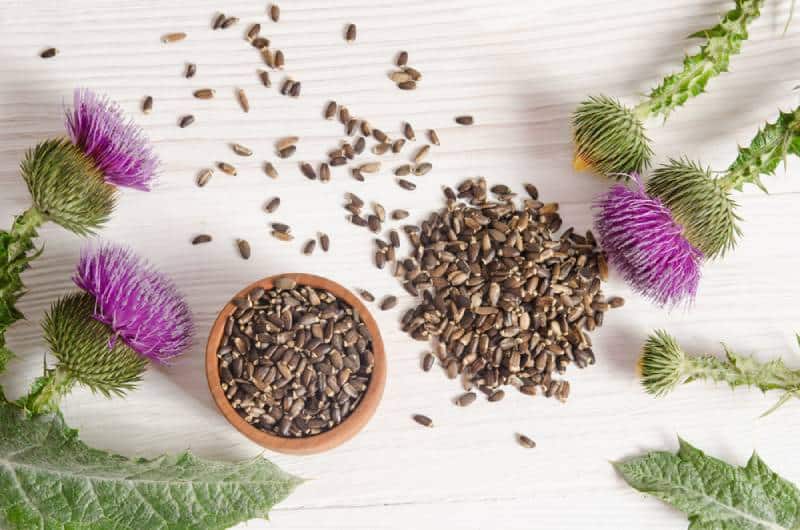
A herb used by Greeks and other Mediterranean cultures in ancient times to cure various diseases tied to the liver and the urinary tract.
A purifier if you would. But, it was also used as a galactagogue. Galactagogues are a class of foods or drugs that promote milk flow and increase milk supply.
The milk thistle is a symbol of this thanks to the thick white veins that run through the herb that people in ancient times often associated with that of mother’s milk, hence the name milk thistle.
The very name is the reason why it’s a staple that most breastfeeding moms flock toward and it does its job well, as long as you make sure to keep to the recommended dosage.
2. Fenugreek
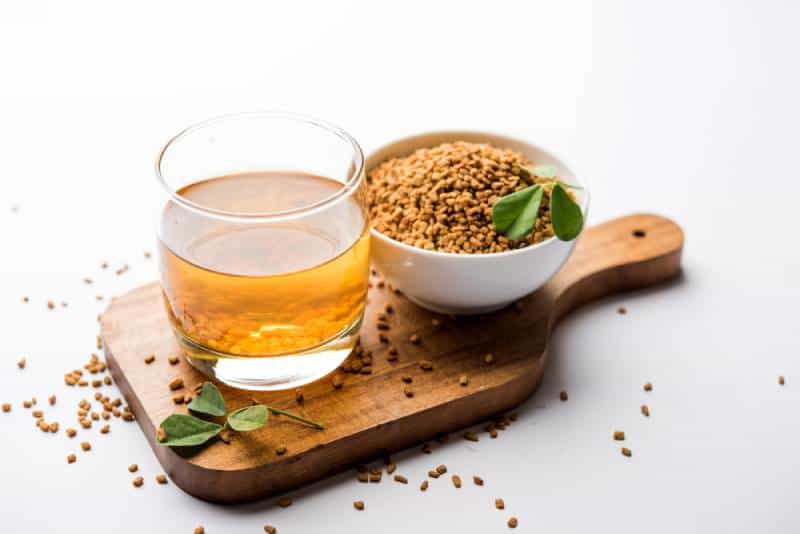
A type of spice used since ancient times, it was most commonly used as an aid with digestive problems or as a way to stimulate delivery.
But that’s not where the benefits stop. Scientists have found several other uses for fenugreek, using it to help treat diabetes and eczema.
The main reason why Fenugreek is mentioned here is for its galactagogue properties, the fact that it helps promote milk production.
Although there currently isn’t enough scientific evidence to back this statement up, the fact of the matter is that it still seems to work.
But, as mentioned before, it’s still a phytoestrogen and shouldn’t be taken lightly.
Any pregnant moms should avoid it to prevent any unwanted early uterine contractions and anyone who has issues with their hormones or hormone-based cancers should stay well away from it.
Not only that, it can even make your bodily fluids, including milk, taste like maple syrup.
This might sound neat but it isn’t a good sign and it might mean that you’re overdosing. Too much of it can even cause nasty bouts of diarrhea.
If you’re still on the fenugreek train though, do remember to read the dosage and stick to it, there’s no need to cause unneeded complications for yourself.
Too much of a good thing can sometimes be bad for you.
3. Coriander
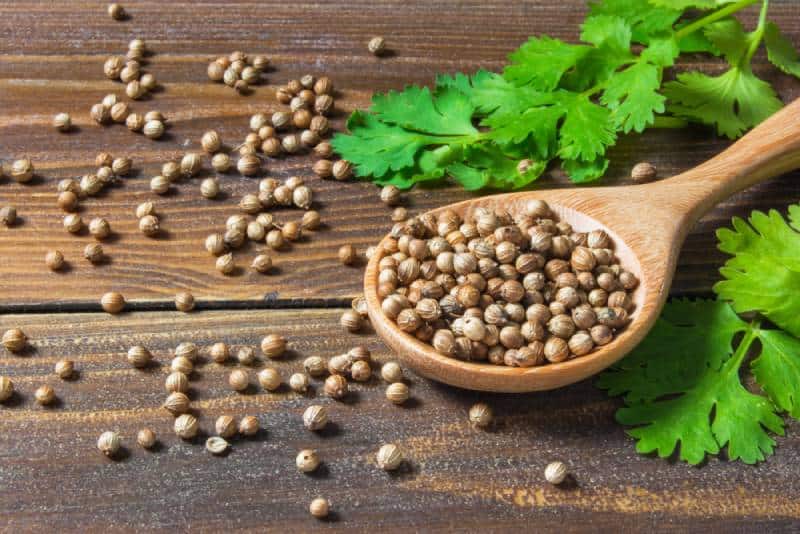
This plant comes under a variety of names, the most famous ones being coriander and cilantro, and sometimes even Chinese parsley.
In whichever shape you find it, it’s definitely one of the herbs to keep a lookout for.
Not only is it good around the kitchen for adding something extra to your dishes, it also helps keep your digestive tract in check by aiding against problems like diarrhea, upset stomachs, changes in appetite, and food poisoning.
The herb also helps out with any sort of bacterial and fungal infections by helping prevent them from manifesting in the first place.
It also helps control levels of blood sugar in diabetics, and can even lower them.
And, of course, it helps in increasing the production of breast milk for your little one to gladly suckle up.
4. Anise
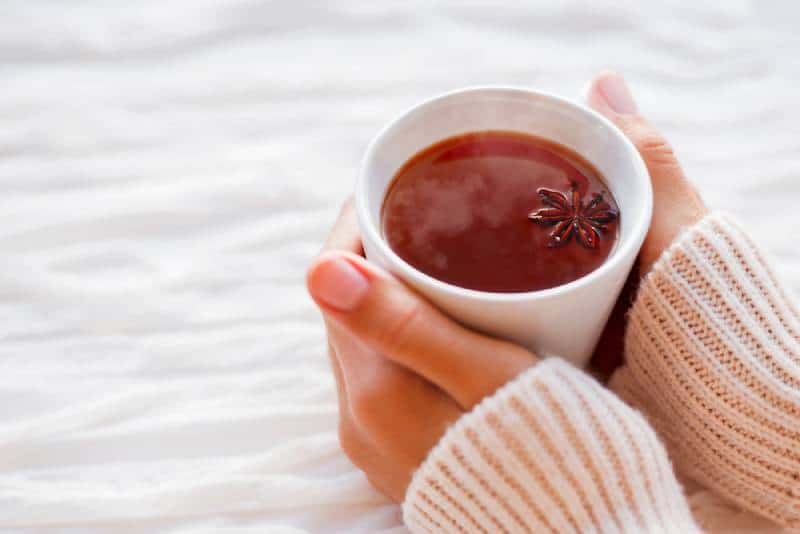
One of the herbs mentioned before for being potentially hazardous for pregnant women because it contains phytoestrogens, anise still has its beneficial uses as well – quite a number of them in fact.
As with many of the other phytoestrogens, anise acts as a great nausea reliever as well as an aid in combating many other digestive issues, constipation being one of the most notable ones.
But not only that, it also helps in dealing with insomnia and some forms of asthma, and can even help dull the effect of seizures in people who are prone to them.
Some people even use it as an aphrodisiac of all things, and it is also a rather common substitute for black licorice as a flavor option.
One of the most common places you might have ingested anise is in the drink called sambuca.
And, thanks to the phytoestrogen mentioned, it helps promote a better and more fruitful milk supply in breastfeeding moms thanks to its galactagogue properties.
That said, you should be careful with the dosage as you never want to have too much of it and one should definitely steer clear of it if you have any hormonal issues.
5. Alfalfa
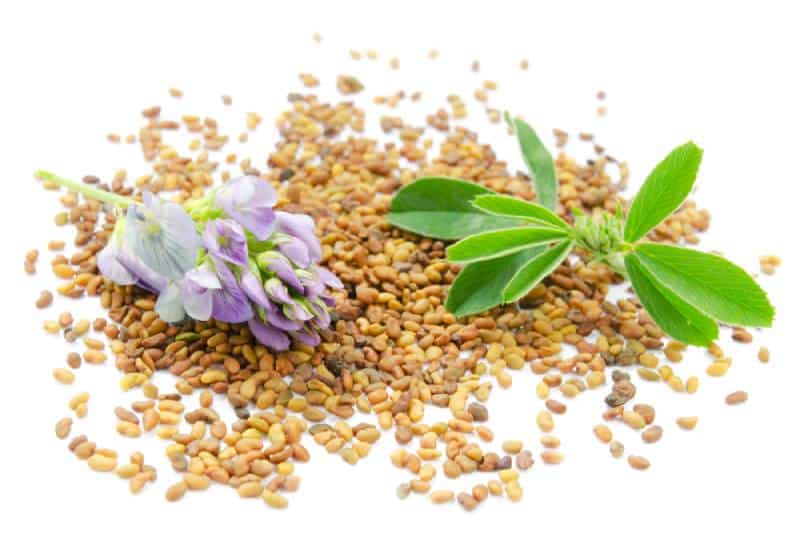
It seems like the ancient civilizations knew their stuff since alfalfa was a type of pea they harvested to use as a galactagogue.
While initially it was used to increase milk supply in livestock (and it’s horrible to make that comparison with nursing moms), people later discovered that it could also aid breastfeeding women in increasing theirs as well.
Naturally, it also has other benefits, mainly in treating digestive disorders, any issues revolving around one’s kidneys, and even some forms of arthritis are known to improve with the consumption of alfalfa.
Now, while it does increase milk supply, it’s not without its side effects. The main one, which all phytoestrogens seem to share, is the increased chance of diarrhea.
While it does work in preventing constipation and the like, overconsumption will lead to a bout of irritated bowels, which can be rather unpleasant.
And, it also enters the milk tubing, so to speak, leaving a rather bitter taste in your precious little one’s mouth and also risking a bout of diarrhea for them as well.
Proper dosage is key, as always, and is something I will always make sure to emphasize with all of these herbs since many of the side effects can be prevented through simply following the instructions written on the labels.
6. Blessed thistle

This herb is commonly confused with milk thistle due to the similarities in their uses.
As is common with many of the herbs on this list that help promote a more potent milk supply and better milk production, blessed thistle is used not only for that purpose, but to also aid in a number of digestive problems.
Usually it’s just constipation or nausea, but it ranges widely. It’s even potent enough to help out with some colds and bacterial infections and was used as a cure for the bubonic plague back in the middle ages.
The fact that it’s rather potent has a few downsides though, the main one being that if you’re someone who has IBS or rather sensitive bowels, you might not want to go for any teas containing blessed thistle due to the risk of making the matter worse.
Some people might also have an allergy to blessed thistle if they’re allergic to ragweed and anything related to that family, so do be careful when shopping on Amazon for these and make sure to read through the descriptions thoroughly.
7. Fennel
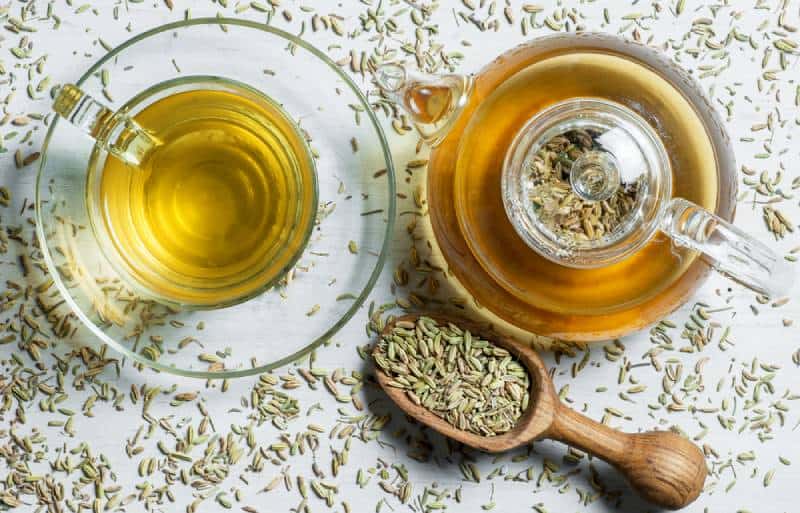
Widely regarded as a superfood in the 21st century, fennel is now an item used in both medicine and cooking alike.
Originally from the mediterranean where the locals used it to flavor their food, now it’s used globally thanks to its medicinal properties.
Namely, it’s fantastic in helping relieve bloating and dissolving any accumulated gas, promoting digestion and stifling heartburn.
But, it has especially beneficial uses for women by helping out during menopause and promoting a healthier flow of breastmilk.
Fennel also belongs to the family of phytoestrogens, meaning its a fantastic galactagogue, but one should also be careful with the dosage for that very reason.
Taking too many fennel seeds, in tea form or otherwise, will wreak havoc on your digestion – and your toilet – due to its colon-relaxing properties.
Any time you resort to fennel tea and anything similar, read the box or consult your lactation consultant on the proper dosage of the herbal medicinal tea.
8. Stinging nettle
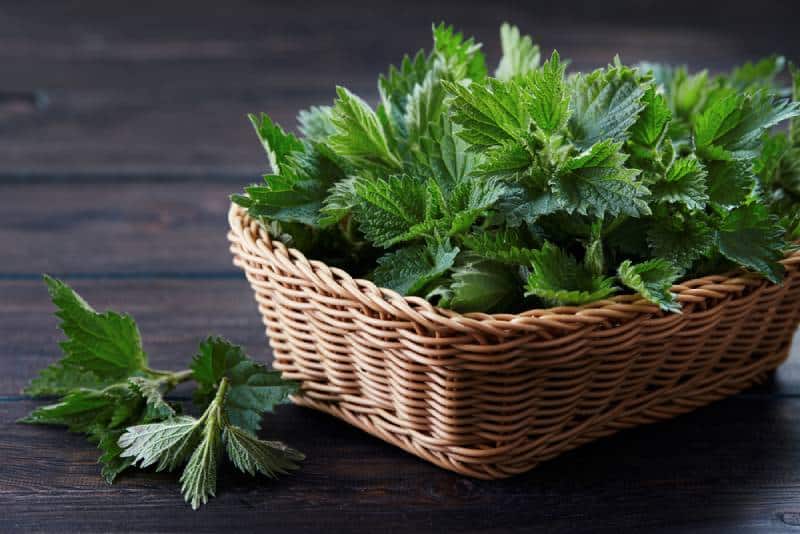
A plant that’s well known to many vegans and vegetarians as an excellent iron substitute, stinging nettle is a fantastic herb when it comes to treating anemia and strengthening one’s immune system against allergic reactions.
While excellent for those spring hay fevers and allergy seasons, the main reason why I’m talking about it here is its galactagogue properties, meaning it helps us produce a healthier supply of breast milk.
While an incorrect dosage can cause one to develop unwanted digestive problems, the stinging nettle herb isn’t as harsh on the dosage as many other plants on this list are.
You’re highly unlikely to get over the recommended 5-6 cup limit, but you should still try and pay attention to it regardless – diarrhea is no fun.
9. Goat’s rue

A member of the same family as fenugreek and sharing a number of similarities, especially its galactagogue nature, goat’s rue has proven to be quite the potent little plant when it comes to increasing breast milk supply in breastfeeding moms.
It’s one of the more popular teas for breastfeeding and that’s mostly due to its notoriety as ‘fenugreek plus’ in every sense of the word.
The downside is that only parts of the plant can be used for these amazing properties, namely the dried leaves, while the rest of it is too toxic for consumption.
This is why you should never pick these herbs on your own and should instead let the professionals deal with them while you consume the finished product.
Why is goat’s rue better than fenugreek you may ask? Well, it mostly boils down to the benefits for mothers as opposed to their overall health benefits.
Goat’s rue has been proven to help in growing new breast tissue for women who’ve recently had breast surgery, plus it helps promote better milk supply in nursing mothers.
Do note that if you’re allergic to peas, you should probably avoid goat’s rue since they are native to that family.
Herbs, while potent, are the cause of many severe allergic reactions and proper care should be taken when taking them as medication.
Common Misconceptions With Herbal Teas
1. Herbal teas are pure
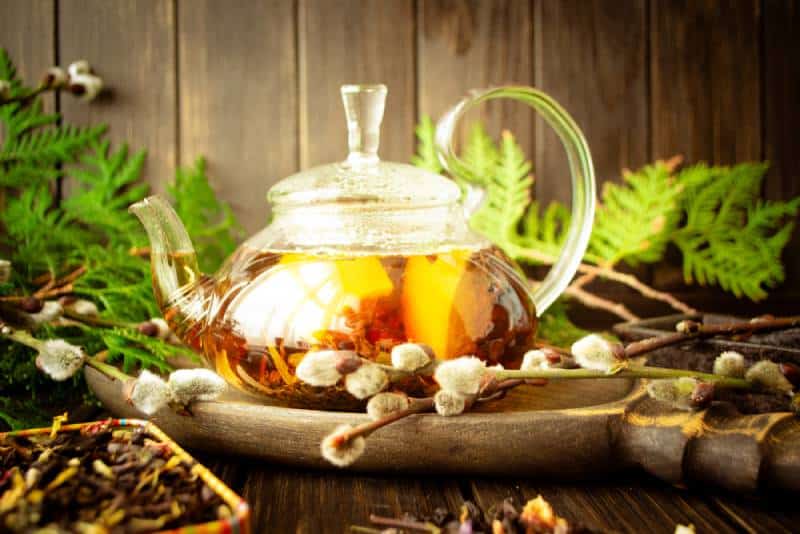
People think that herbal teas are pure herbs and nothing else. They couldn’t be further from the truth.
While it’s no major biggie, it’s important to know what’s used alongside the herbs in your teas as you might be allergic to some of the other ingredients in the tea bags.
It’s nothing too special, but the tea blend usually consists of the herb in question and a few flavor enhancers.
This is because most of these beneficial herbs are bitter and one needs to have something to help dull the flavor and help make it more palatable.
The most commonly added flavor enhancers are chamomile, lemongrass, raspberry leaf, lemon balm, lavender, and other pleasantly smelling and mild herbs that are easy to stomach and will not interfere with the nursing process.
2. Herbal teas are darker in color
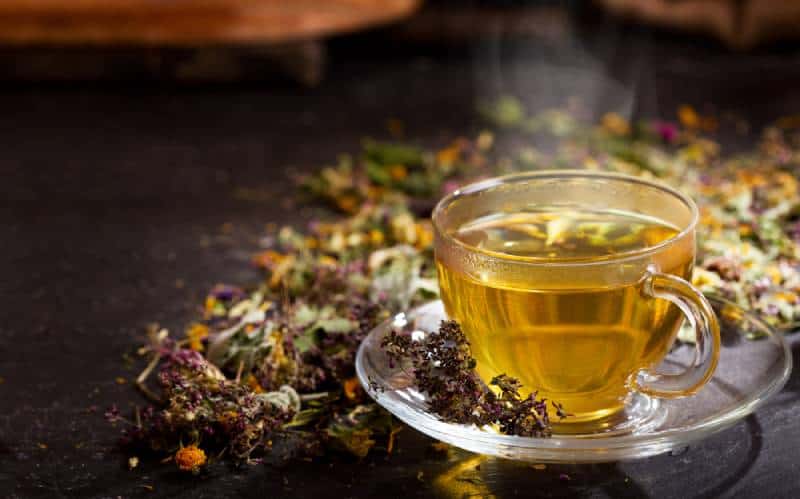
Just because a tea for breastfeeding is purely herbal, it doesn’t mean it’s going to behave as other, regular teas.
One might be accustomed to the fact that teas fully tint the water the tea bag is placed in, much like black tea, green tea and the like.
Herbal teas barely do any of that, if at all.
Some people also claim that the taste tends to be rather soft compared to the regular bitterness of the associated herbs, but that both depends on which herbal tea you’re taking and how many flavor enhancers were used in the process.
I’d refer to #1 for that one.
3. Breastfeeding tea will help increase my milk supply

The inherent belief that the herbal teas marketed as teas for breastfeeding will have a 100% success rate is outright silly.
While research has been done on the subject matter, the results are few and are inconclusive.
Plus, what works for some moms isn’t guaranteed to work for others. We’re all unique beings and our immune systems and our organisms as a whole play a big part in that.
All I can say is to try a different sort of herbal tea for breastfeeding, or if you’ve already tried a handful and none seem to be helping, to simply sit down, take some time and re-evaluate yourself.
Do a bit of introspection and analysis into what might be causing issues with your delayed letdown and reduced breast milk supply.
It could just be stress or it could be an underlying issue.
Consulting with your doctor, lactation consultant, or other health care provider for advice on moving forward or getting back to a normal tempo would be the wisest decision.
Even the best lactation teas won’t help where a professional can offer their insight.
4. The tea is doing more harm than good

Now, this is only a partial misconception as sometimes the ingredients of the herbal teas might contain something that you could be allergic to.
But, the herbal tea companies cannot control that. Every person is unique, and that means they have allergies that may be unique to them specifically.
Always make sure to read the labels before buying so you don’t end up wasting your money on something that you cannot stomach whatsoever.
On the other hand, the “more harm than good” part might be coming from the fact that people often tend to overdose on galactagogues without which these teas wouldn’t even function.
One thing that I keep repeating throughout this article is that these herbs are ingredients for various drugs and even then they’re diluted, which they may not be in these teas.
They’re potent medicines that might end up irritating your bowels for a time if one doesn’t stick to the proper dosage.
And again, even the dosage that’s laid out might not be correct for you.
Sometimes even that much might start causing havoc with your guts because you might have an underlying bowel irritability problem.
If this is the case you should further reduce your intake or cut it off altogether after seeking your doctor’s advice.
In Conclusion
While herbal teas for breastfeeding might be potent solutions for a milk shortage or a sudden drop in milk supply for nursing moms and provide excellent nursing support, they’re also considered very powerful drugs should be taken seriously.
Herbal products are no joke and misuse and overdose can cause serious health issues, so please stick to the prescribed amounts.
Not to mention the fact that while some people claim that they do work, the field of research on them is still rather new and has a lot more to explore, so don’t take any statement relating to them for the exact truth, at least not yet.
Another thing – do not imbibe the tea when breastfeeding.
While not really a medicinal issue of any kind, it’s purely for the fact that you’ll have your hands full with your baby in the first place and the liquid inside is bound to be hot.
The last thing you want to do is scald either yourself or your precious child.
Stay smart and stay safe, the health of both you and your baby is important and proper tea restraint should be exercised for you to get the full health benefits out of these wonderful products.
References:
- Niagara Region Public Health, ”Herbal teas during pregnancy and breastfeeding. (n.d.).”
- Bazzano AN, et al. (2016) “A review of herbal and pharmaceutical galactagogues for breast-feeding.”
READ NEXT: Benefits Of Drinking Lemon And Ginger Tea During Pregnancy
Like this post? Please share or pin it for later. You can also stay in the loop and follow us on Facebook, Instagram or Pinterest.
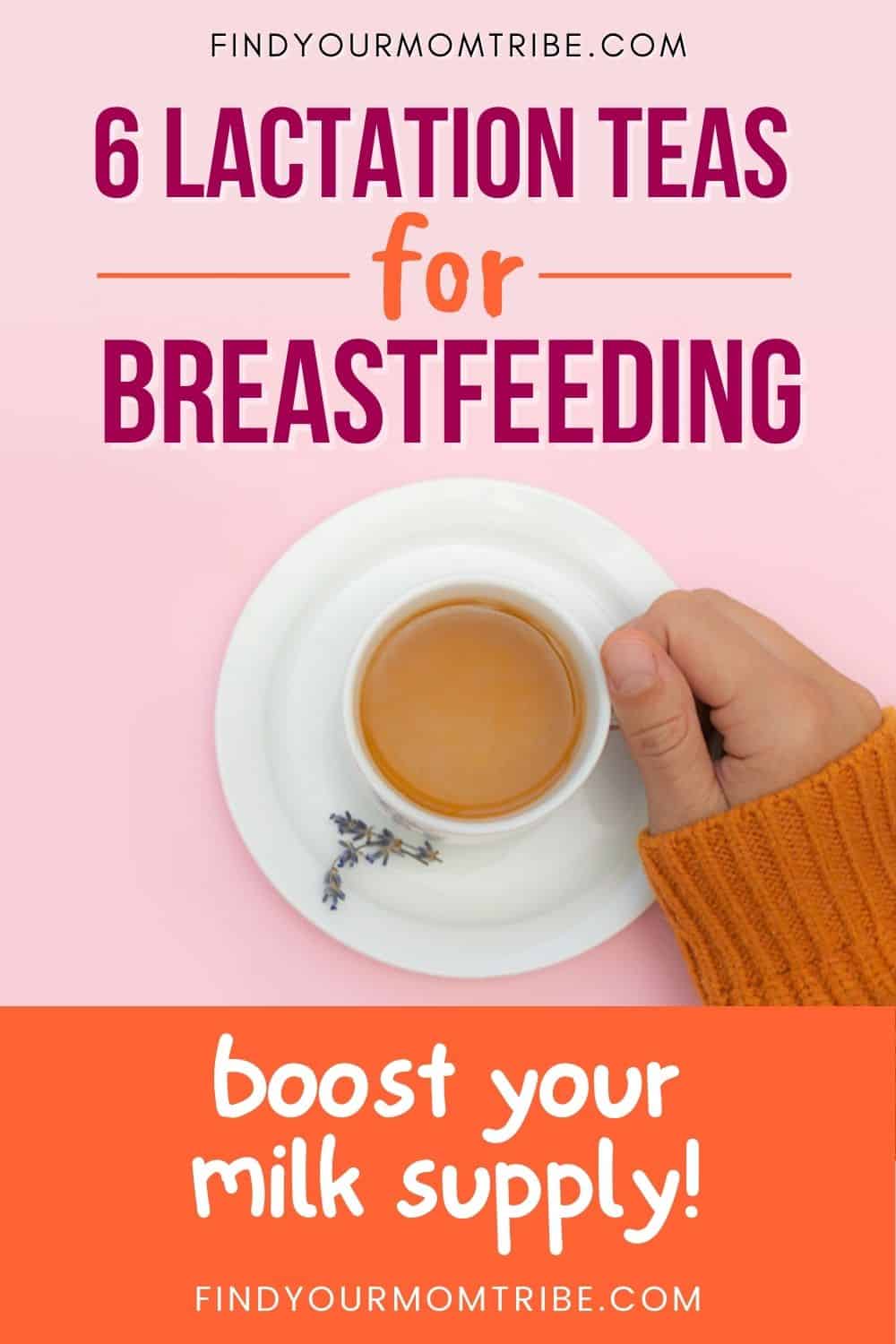
We love honesty! Find Your Mom Tribe is an Amazon Associate and we earn from qualifying purchases through affiliate links at no extra cost to you. Please see our full Amazon Affiliate disclosure for more information.

